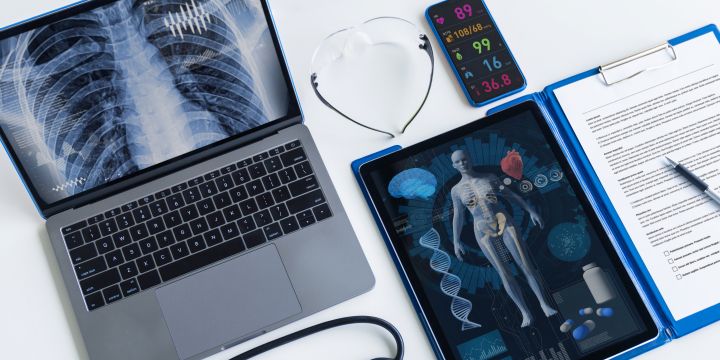Key Takeaways
- Clinical trials are necessary to create safe and effective therapies.
- These trials help ensure new drugs and therapies are thoroughly tested.
- Participating in clinical trials can contribute to medical research and potentially benefit personal health.
Table of Contents
- Introduction to Clinical Trials
- Types of Clinical Trials
- Phases of Clinical Trials
- Why Are Clinical Trials Important?
- How to Participate in a Clinical Trial
- Challenges and Considerations
- Ethics and Safety in Clinical Trials
- The Future of Clinical Trials
Introduction to Clinical Trials
Clinical trials are investigations conducted to assess the effectiveness and safety of novel medical interventions in people. They are a cornerstone for medical advancements, providing vital scientific data before any treatment reaches public use. For instance, clinical trials for lung cancer have been fundamental in advancing therapies that can significantly improve patient care. Through these controlled and rigorous procedures, researchers can assess how a new treatment works under various conditions, helping uncover potential side effects and interactions that arise when a broader patient base uses the treatment.
Beyond the laboratory, clinical trials serve as a bridge between experimental research and practical patient application. They are conducted in carefully monitored environments to ensure data accuracy and participant safety. This controlled approach allows scientists to establish optimal dosages and comprehensive treatment protocols considering patient diversity. Such data is crucial in regulatory approval processes, ensuring the safe roll-out of new medications and therapies.
Types of Clinical Trials
Clinical trials are not one-size-fits-all; they come in various forms, each addressing different scientific inquiries. One type is treatment trials, which explore new treatments, drug combinations, or novel approaches such as surgery or radiation therapy. These are critical when understanding how to approach best and combat diseases. Prevention trials, on the other hand, aim to find strategies or medicines that prevent disease development. Such trials investigate the preemptive potential of vaccines and lifestyle changes that reduce risk factors.
Also significant are diagnostic trials, which focus on identifying better procedures or tests for accurately diagnosing diseases. Quality-of-life trials assess interventions that may improve symptoms and comfort for individuals with chronic conditions. Through these diverse trials, researchers offer a holistic view of what is needed to tackle health issues, ranging from prevention to treatment and overall patient experience.
Phases of Clinical Trials
Clinical trials progress systematically through distinct phases, each designed to answer specific scientific questions about the treatment. Phase I marks the beginning of human testing and focuses primarily on safety and determining the optimal dosage range. This phase typically involves a small group of volunteers and often focuses on how the drug is metabolized and excreted.
Once a treatment shows initial safety, it advances to Phase II trials, which aim to assess its efficacy while continuing to evaluate its safety profile. More significant participant numbers are used in these trials, which aid in determining how well the medication works for the ailment under study. Phase III trials expand even further, involving hundreds or thousands of participants across multiple sites. These extensive studies aim to monitor adverse effects, verify efficacy, and contrast the novel treatment with established or conventional therapies. After FDA approval, Phase IV trials may be conducted post-marketing to gather additional information about the drug’s long-term safety and efficacy.
Why Are Clinical Trials Important?
Clinical trials depend on the development of medical knowledge and healthcare. They enable the rigorous testing of new interventions, ensuring that these treatments are safe for patients and effective for their intended purposes. Trials can lead to significant medical breakthroughs, potentially introducing new therapies that alter the course of disease management and patient care.
The outcomes of these trials often form the foundational evidence required for regulatory approvals by bodies such as the FDA. By underpinning the scientific process with controlled testing, trials ensure that new medical innovations are grounded in reliable data. Institutions like the National Institutes of Health are vocal advocates for clinical trials, recognizing their role in validating new treatment modalities and contributing to overall public health advancements.
How to Participate in a Clinical Trial
Participation in clinical trials is a powerful way for individuals to contribute to advancing medical research. Those wishing to participate must typically meet specific eligibility criteria outlined in the trial protocol. These might include factors like age, gender, medical history, and current health status, which help to identify suitable candidates for the study and ensure accurate data collection.
Understanding the purpose of the study and its possible risks and benefits is crucial for potential participants. Trials provide participants access to new treatments that are not yet widely available, which could benefit their health while aiding scientific discovery. Before joining, individuals are given thorough information about participation, ensuring informed consent is obtained in line with ethical standards.
Challenges and Considerations
Despite their immense value, clinical trials face numerous challenges. Recruiting and retaining participants is often a significant hurdle, as many trials require large and diverse populations to ensure comprehensive data. Delays in recruitment can lead to stalled studies and prolonged timelines for medical discoveries.
Clinical trials must also handle complicated regulatory environments to guarantee adherence to moral and legal requirements. Data management presents another challenge, as the integrity of trial results depends on robust and accurate data collection. Managing these challenges while maintaining participant safety and ethical standards is imperative for the success of any clinical trial.
Ethics and Safety in Clinical Trials
Ethics and safety are paramount considerations in the design and execution of clinical trials. Ethical rules, based on concepts like informed consent and confidentiality, are closely followed to safeguard the rights and welfare of participants. Participants receive comprehensive information about the study, enabling them to make knowledgeable decisions about their involvement.
Institutional Review Boards (IRBs) oversee trials to ensure adherence to ethical standards and regulatory requirements. These governing bodies review research proposals to safeguard participant welfare, balance potential risks and benefits, and ensure scientific validity. By maintaining these standards, clinical trials can proceed ethically and safely, offering peace of mind to participants and reliable data to researchers.
The Future of Clinical Trials
Clinical trial technology is changing quickly due to new approaches and technical developments. Technologies such as adaptive trial designs and digital health platforms are revolutionizing how trials are conducted, making them more efficient and participant-friendly. These innovations enable researchers to modify protocols in response to interim results, potentially speeding up the timeline for new treatments.
Looking ahead, the future of clinical trials holds the promise of further integrating real-world data to enhance the applicability and accuracy of results. More precision in medical research will probably result from improved data analysis and trial design brought about by increased usage of AI and machine learning. This evolution signifies a future where clinical trials are faster, more reliable, and centered around patient needs, ultimately leading to more rapid medical advancements.



